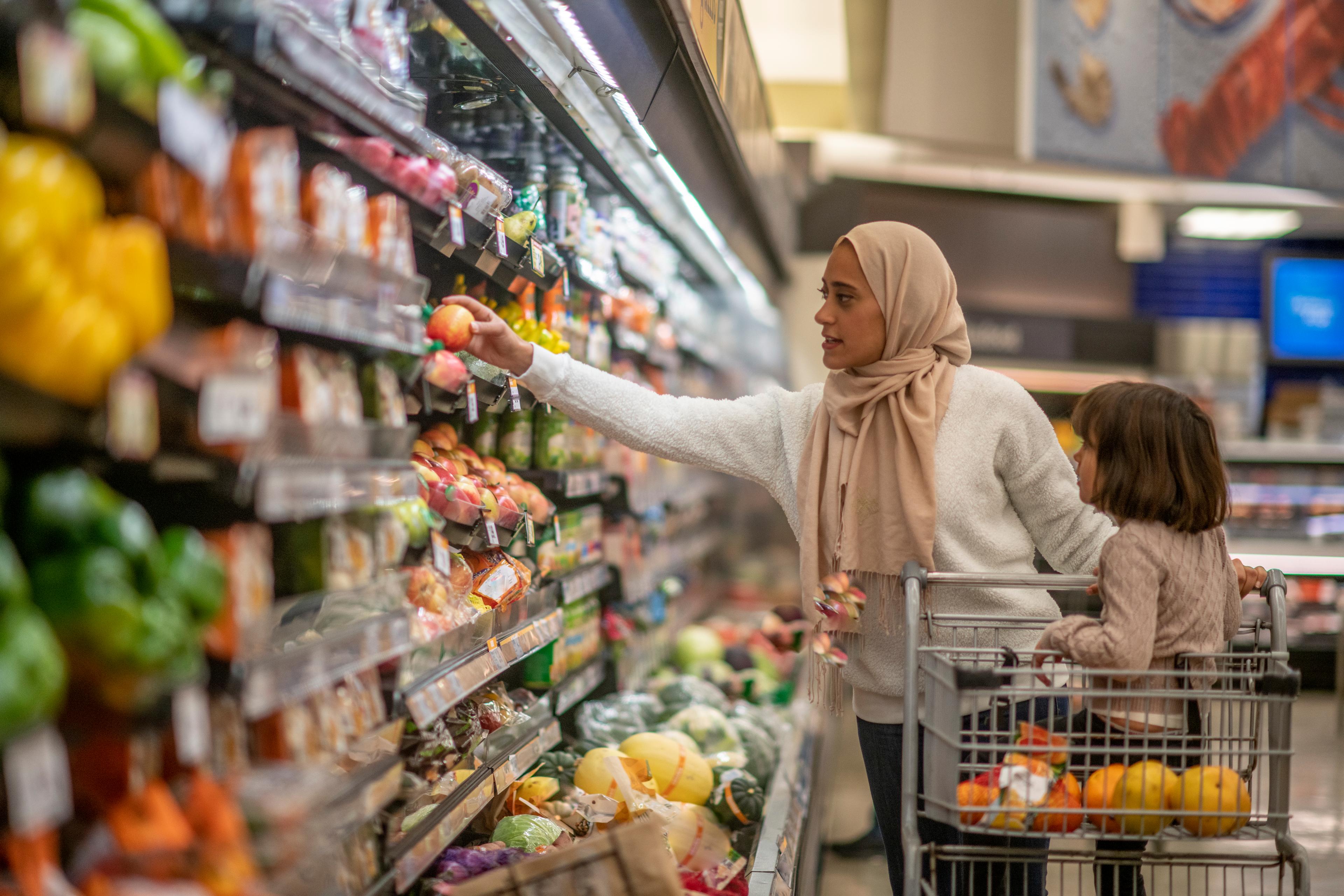5 Insider Tips on How to Shop Smarter and Healthier at the Grocery Store
Shandra Martinez
| 3 min read

With so many food choices, figuring out what’s the healthiest option for you can be confusing. Reading labels and understanding terms from expiration dates to sugar content can feel like trying to understand another language. Fortunately, Shanthi Appelö, a registered dietitian and health and wellness spokesperson for Blue Cross Blue Shield of Michigan, has some tips on how to shop smarter and healthier at the grocery store.
What to know about expiration dates
Expiration dates can be confusing, but there are two things to know. First, they're not standardized, and second, they have almost nothing to do with food safety. The sell-by dates tell grocers how long to display a product.
“You can absolutely consume foods beyond these use-by dates, which is essentially a suggestion for when the food will be at its best quality,” said Appelö, adding the exception is infant formula, where paying attention to the dates is important.
In general, food doesn't spoil after the use-by date, but it may not taste as good. Food expiration dates are really just guidelines, not deadlines. When in doubt, use your senses to make the final call, Appelö advises. Check out her video for more on this topic.
What to look for when buying fruit snacks
If you are looking for a healthy fruit snack for your kids, pay attention to the ingredient list. Most fruit snacks have little to no fruit. Instead, they are mostly made up of corn syrup, gelatin, cornstarch, artificial flavorings and colors. It’s best to reach for the real deal: freeze-dried fruit.
“It’s a great package option that has plenty of nutrients and no additives,” Appelö said.
Learn tips about buying healthy fruit snacks in this video.
How to decode egg labels
Eggs are a good source of protein, but telling the difference between different types can be confusing, with options including cage-free, pasture-raised, free-range and organic. The latter is the most regulated. It means that hens were cage-free, given organic feed, and had outdoor access.
“Don't be fooled by the words farm fresh, all-natural or hormone free. They're mere marketing terms. There's more to egg carton labels than you might think,” Appelö said.
Check out the video below to hear more from Appelö about decoding egg labels.
How to shop for produce
Fruit is an important part of a well-balanced diet, but the secret to selecting the best produce is understanding the growing cycle. For example, fruits like berries, cherries, melons, pineapple and citrus are non-climacteric, meaning they won't ripen further after they are harvested. Climacteric fruits such as avocados, peaches, pears, kiwis, and bananas can be purchased before they're ripe. They will continue to ripen, getting more flavor and sweetness.
“Understanding the difference between climacteric and non-climacteric produce can help you save money and reduce food waste,” Appelö said.
Check out the video below to hear more from Appelö about how to shop for produce.
What to know about hidden sugars in packaged foods
Added sugars are almost impossible to escape when shopping for foods, even ones that claim to be natural or healthy. Worse yet, some of these sugars are hidden with funny names in the ingredient list. Be on the lookout for names that end in “ose” or items labeled as syrup, nectar or juice.
“You'll want to see these listed towards the bottom of the ingredient list, which indicates a lesser amount of that ingredient. It's important to note that sugar is sugar, and these various forms affect our bodies similarly, regardless of where they were extracted from,” Appelö said.
Check out the video below to hear more from Appelö about how to spot hidden sugars in food products.
Check out the A Healthier Michigan YouTube channel for more videos from Appelö with tips and suggestions for living a healthier life.





